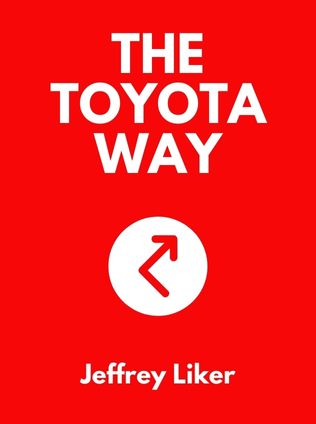
The Toyota Way
14 Management Principles From the World’s Greatest Manufacturer
By Jeffrey Liker
Published 01/2004
About the Author
Jeffrey K. Liker, Ph.D., is a renowned professor of industrial and operations engineering at the University of Michigan. He co-founded and directs the Japan Technology Management Program and Lean Manufacturing and Product Development Certificate Program at the university. Dr. Liker has won four Shingo Prizes for Excellence and is a principal at Optiprise, a consulting firm specializing in lean enterprise and supply chain management. His deep understanding of Japanese business culture and the Toyota Production System (TPS) stems from years of research and direct interaction with Toyota's managers, executives, suppliers, and training centers.
Main Idea
The Toyota Way, authored by Jeffrey K. Liker, unveils the 14 management principles that have driven Toyota to become the world's most profitable automaker. This book explores Toyota's unique lean production system—a revolutionary approach to business processes that emphasizes continuous improvement, waste reduction, and high-quality output. Through meticulous research, Liker presents a comprehensive management model that can transform businesses across various industries, grounded in Toyota's long-term philosophy, people-centered culture, and technical excellence.
Table of Contents
- The World-Class Power of the Toyota Way
- How Toyota Became the World's Best Manufacturer
- Eliminating Waste
- Long-Term Philosophy
- The Right Process Will Produce the Right Results
- Add Value by Developing Your People and Partners
- Continuously Solving Root Problems Drives Learning
- Using the Toyota Way to Transform Technical and Service Organizations
- Build Your Own Lean Learning Enterprise
The World-Class Power of the Toyota Way
Toyota's journey to operational excellence began in the 1980s when its superior quality and efficiency caught the world's attention. By the 1990s, Toyota had set itself apart even among other Japanese automakers due to its unique manufacturing philosophy. Toyota's approach to auto production, characterized by rapid design, reliability, and competitive costs despite high wages, ensured consistent quality. The company’s resilience in addressing and overcoming weaknesses further solidified its reputation.
"Toyota designed autos faster, with more reliability, yet at a competitive cost, even when paying the relatively high wages of Japanese workers." - Jeffrey K. Liker
A cornerstone of Toyota's success is its production system, a forerunner of the lean manufacturing movement that defines customer value, optimizes the value stream, ensures flow, and implements a pull system driven by customer demand. This system fosters a culture of continuous improvement and teamwork.
How Toyota Became the World's Best Manufacturer
The Toyota Production System (TPS) is a product of Toyota's historical evolution and the influence of its founding family. Sakichi Toyoda's innovation in creating a mistake-proof automatic loom laid the groundwork for the company's approach to problem-solving and quality assurance. His son, Kiichiro Toyoda, expanded on these principles by incorporating just-in-time manufacturing inspired by the U.S. supermarket system.
Sign up for FREE and get access to 1,400+ books summaries.
You May Also Like
The Life-Changing Magic of Tidying Up
The Japanese Art of Decluttering and Organizing
By Marie KondoThe Lean Startup
How Today's Entrepreneurs Use Continuous Innovation to Create Radically Successful Businesses
By Eric RiesWho Moved My Cheese?
An Amazing Way to Deal with Change in Your Work and in Your Life
By Spencer Johnson, M.D.Make Your Bed
Little Things That Can Change Your Life...And Maybe the World
By William H. McRaven



















